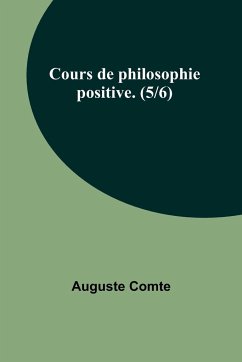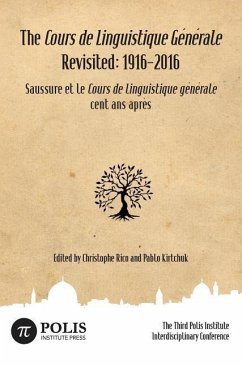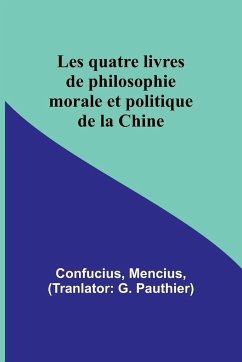
Cours de philosophie positive. (1/6)
Versandkostenfrei!
Versandfertig in 1-2 Wochen
24,99 €
inkl. MwSt.

PAYBACK Punkte
12 °P sammeln!
Cours de philosophie positive. (1/6) by Auguste Comte a été considéré comme un travail important tout au long de l'histoire humaine, et afin de garantir que ce travail ne soit jamais perdu, nous avons pris des mesures pour assurer sa préservation en republiant ce livre dans un format contemporain pour les générations actuelles et futures. Ce livre entier a été retapé, remanié et reformaté. Étant donné que ces livres ne sont pas fabriqués à partir de copies numérisées, le texte est lisible et clair.














